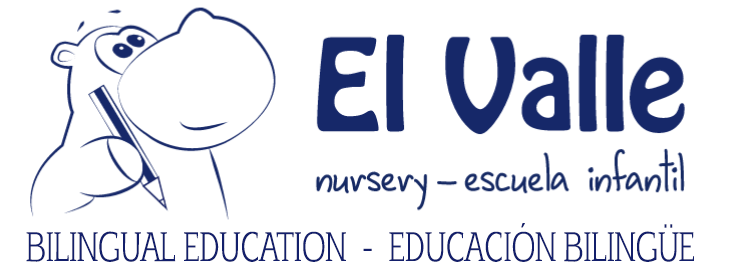
Habilidades sociales desde el primer año
La Escuela Infantil del Colegio El Valle guía a las familias para fomentar relaciones positivas en los primeros años de vida, una etapa clave en el desarrollo social y emocional.
Hoy en día, sabemos que los primeros años de vida suponen una ventana de oportunidad para fomentar en los niños aprendizajes de todo tipo. Se trata de un espacio de tiempo en el que los más pequeños funcionan como esponjas que absorben toda la información que les rodea, creando así las primeras conexiones neuronales, que tendrán gran peso en la formación de su personalidad y en cómo se relacionen con su entorno en un futuro.
Uno de los contextos más importantes a nivel evolutivo que tenemos que conocer y fomentar las familias es el aspecto social. Para ello, es importante ser conscientes de las características típicas de esta edad para así facilitar herramientas útiles y adaptadas que permitan que nuestros pequeños creen sus primeras relaciones sociales en un ambiente positivo. Por ello, desde la Escuela Infantil del Colegio El Valle, consideramos esencial dar información y apoyo a las familias en este proceso, a través de información de calidad para abordar esta etapa tan importante.
Así, algunas de las peculiaridades presentes a nivel social en los niños de 1 año son:
– Empiezan a entender que hay otras personas, además de ellos mismos y de sus figuras de apego, y muestran un ligerísimo interés por ellos.
– Es posible que se acerquen a otros niños, pero no juegan entre ellos, sino que practican un juego que se denomina “en paralelo”, uno al lado del otro.
– No comprenden bien las emociones de los demás, por lo que a veces sus respuestas pueden resultar bruscas o llegar a hacer daño sin querer.
– La imitación, especialmente hacia niños más mayores o adultos es una forma de aprendizaje especialmente importante en esta etapa, les enseñará a comportarse y resolver conflictos.
– “Compartir” es un término sin significado para un niño de esta edad. Se trata de una etapa en la que la posesividad está muy presente. Suele aportarles seguridad dejarles claro que el otro niño “solo está viendo su juguete” y que “está bien que le dé un turno” para que juegue con él. Pero también es importante recordarles que “es su juguete y no se lo quitarán”.
– Puede ayudar seleccionar un par de artículos particularmente preciados y que no estén a la disposición de los demás. Esto puede ayudar a los niños pequeños a sentir que tienen algo de control sobre su mundo y los hace menos posesivos sobre otras pertenencias.
– Como potencial imitador a esta edad, participará enérgicamente en cualquier tarea que se haga en casa. Aunque tendremos que invertir más tiempo y seleccionar tareas sencillas, puede convertirse en un juego participativo que le hará sentirse útil. Ayudar, al igual que compartir, es una destreza social importante, y es positivo que la desarrollen desde la primera infancia.
..
The Early Childhood School at El Valle: Guiding Families to Foster Positive Relationships During the Early Years A Key Stage in Social and Emotional Development
At El Valle Early Childhood School, we understand that the first years of life represent a unique window of opportunity for fostering various types of learning. During this period, young children act as sponges, absorbing all the information around them and forming the first neural connections. These connections play a significant role in shaping their personality and influencing how they interact with their surroundings in the future.
One of the most critical areas of development that families need to understand and nurture is the social aspect. Being aware of the typical characteristics of this age is essential for providing tools and strategies tailored to help children build their first social relationships in a positive environment. At El Valle Early Childhood School, we believe it’s crucial to offer families high-quality information and support to navigate this vital stage of development.
Some social characteristics typical of one-year-olds include:
- Awareness of Others: They begin to understand that other people exist beyond themselves and their attachment figures, showing a slight interest in them.
- Parallel Play: While they may approach other children, they do not play together. Instead, they engage in what’s known as “parallel play,” playing side by side.
- Limited Understanding of Emotions: At this age, they don’t fully grasp others’ emotions, so their responses may occasionally seem abrupt or unintentionally hurtful.
- Imitation as a Learning Tool: Imitation, especially of older children or adults, is a key learning method at this stage. It teaches them how to behave and resolve conflicts.
- Sharing is Abstract: The concept of sharing has no real meaning to a child of this age. Possessiveness is prominent and often provides a sense of security. It can be helpful to explain that another child is simply “looking at their toy” or that “it’s okay to give them a turn,” while reassuring them that “it’s their toy and won’t be taken away.”
- Precious Items: Allowing children to keep a couple of particularly cherished items out of others’ reach can help them feel more in control and less possessive about other belongings.
- Active Participation: As natural imitators, children at this age eagerly join in household tasks. Although these activities might take more time and require simpler tasks, they can become engaging games that make children feel helpful. Helping, much like sharing, is an important social skill, and encouraging its development from early childhood is highly beneficial.



